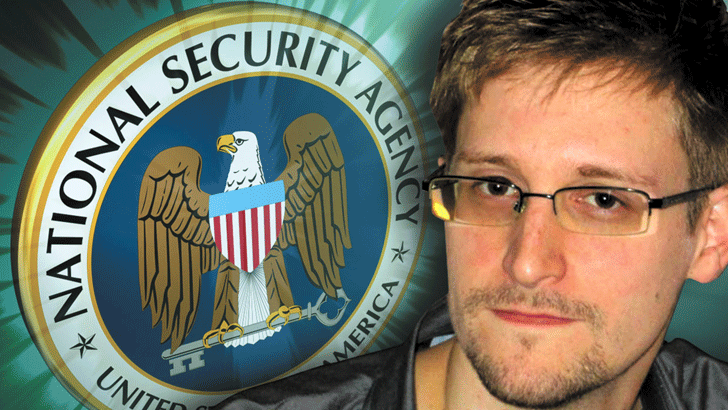Bad times for Big Brother

A major rift has developed in the US ruling class over the revelations by Edward Snowden of the massive spying operations conducted by the National Security Agency.
On 16 December, a conservative federal judge ruled that the vacuuming up of phone “metadata” of US citizens was most likely a violation of the Fourth Amendment of the Constitution.
He described the NSA program as “almost Orwellian”, and that James Madison, one of the drafters of the Constitution, would be “aghast” to learn that the government was encroaching on liberty in such a way.
“I cannot imagine a more ‘indiscriminate’ and ‘arbitrary’ invasion than this systematic and high-tech collection and retention of personal data on virtually every single person for purposes of querying and analyzing it without prior judicial approval”, the judge wrote.
The judge ordered the NSA to shut down that program, but granted a stay of the order so the Obama administration can appeal it.
Two days later, an advisory panel appointed by Obama issued a report that found “the current storage by the government of bulk metadata creates potential risks to public trust, personal privacy and civil liberty”.
This panel was not some left wing or even liberal group. It was composed of Richard Clarke, a former national security official under Presidents Clinton and Bush; Michael Morell, former deputy director of the CIA; Cass Sunstein, who ran the office of Information and Regulatory Affairs in the Obama White House; Peter Swire, a privacy law specialist at the Georgia Institute of Technology; and Geoffrey Stone of the University of Chicago Law School.
The report’s recommendations included the stopping of the bulk collection and storing of phone data, and reforming the structure of the Foreign Intelligence Surveillance Court, which currently hears only one side – the government’s – before rubber-stamping any and all requests for spying.
Obama is currently “studying” the report. He initially said that maybe some reforms could be done, but repeated the blatant lie that there was no evidence that the phone surveillance was being abused.
On 29 December, the German publication Der Spiegel revealed new information about another aspect of the program. The NSA, with help from the CIA and FBI, secretly intercepts physical computers ordered online before they are sent on to their purchasers. It then inserts spyware into the computers.
Then came the bombshell. The most important capitalist newspaper in the United States, the New York Times, ran an editorial in early January titled, “Edward Snowden, Whistle-Blower.”
The editors wrote, “Considering the enormous value of the information he has revealed, and the abuse he has exposed, Mr. Snowden deserves better than a life of permanent exile, fear and flight. He may have committed a crime to do so, but he has done his country a great service.”
The editorial took up Obama’s assertion last August that Snowden should come home to face those charges in court. “If the concern was that somehow this was the only way to get this information out to the public”, Obama had said, “I signed an executive order well before Mr. Snowden leaked this information that provided whistle-blower protection to the intelligence community for the first time.”
The editorial demolished the claim. Snowden was employed by a contractor, not the NSA directly. “In fact, the executive order did not apply to contractors, only to intelligence employees, rendering its protections useless to Mr. Snowden …
“In retrospect, Mr. Snowden was clearly justified in believing that the only way to blow the whistle on this kind of intelligence-gathering was to expose it to the public and let the resulting furore do the work his superiors would not.”
The editorial concluded, “When someone reveals that government officials have routinely and deliberately broken the law, that person should not face life in prison at the hands of the same government.”
The White House and the Department of Justice rejected the Times’ plea for clemency out of hand.
Beside the domestic reaction to Snowden’s revelations, there is the international repercussion, which also underlies the rift in the ruling class. The massive spying on citizens in Germany and France, the bugging of heads of state including of Germany, Brazil and Israel, of foreign companies’ economic secrets, can hardly be attributed to the need to fight “terrorism”.
As a result Washington’s standing in the world has been diminished, and its international relations strained. That also worries more far-sighted sections of the ruling class.
It is no accident that last week the New York Times ran a front-page story about another group of whistle-blowers who have just come forward. In 1971 an FBI headquarters was broken into by Catholic anti-war activists. They stole documents and released them to the press.
These were the first documents that demonstrated the vast campaign, known as COINTELPRO, which the FBI waged against the Black, Chicano, anti-war and socialist movements. At the time, the FBI and White House used the same rhetoric they and the NSA now raise against Snowden: that the revelations “endanger American lives” and “national security”.
In spite of a massive hunt by the FBI, these activists got away. Now their story is being told in a new book by the Washington Post reporter who broke the original story in 1971.
The statute of limitations on their “crime” has long since passed.
The parallels with Snowden are obvious.
No wonder Edward Snowden now says, “I won!”